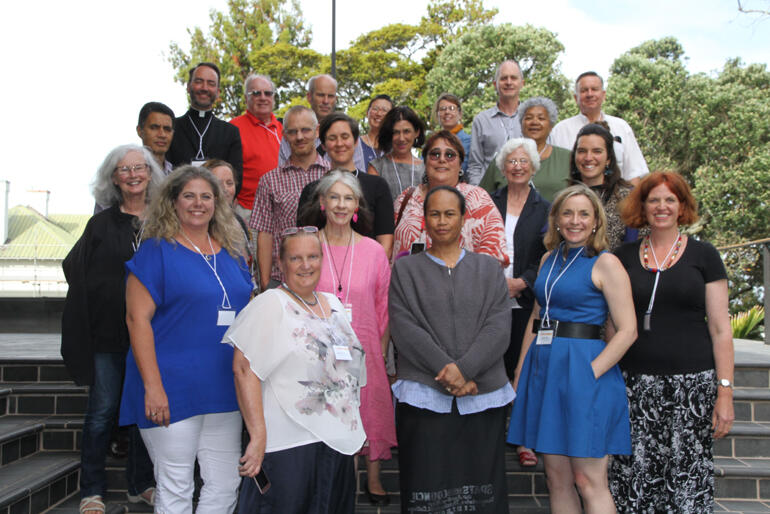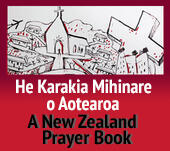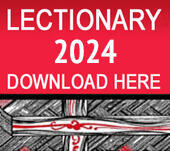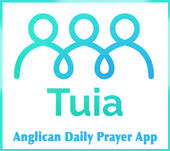
Back in March 2020 around 30 Christian changemakers and communicators from around Aotearoa New Zealand met for a workshop at Holy Trinity Cathedral, Auckland to learn how “Words That Work” can refocus our conversations about the rights of people seeking asylum.
The day-long seminar hosted by the Anglican Media and Communications Office and Social Justice Network challenged Christian justice advocates and communicators to shift their conversations into the shared values we hold with those who disagree with us, to help build a kind, fair and safe society for everyone.
Michelle McDonald, who is the editor of Anglican Focus and a Communications and Community Engagement Specialist for the Anglican Diocese of Southern Queensland shared insights from the Australia-based ‘Words That Work’ research that shifts the conversation on refugees and people seeking asylum. Zeroing in on causes for the problem with refugees, Rev Dr Katalina Tahaafe-Williams also contributed her theological insights into the impact of racism on the way we talk about each other.
Less than three weeks after the Words That Work meeting in Auckland, Aotearoa New Zealand responded to the global coronvirus pandemic by closing its borders down harder than has ever been done before.
Suddenly, people granted refugee status in Aotearoa New Zealand were stuck behind closed borders with only New Zealand nationals allowed to enter the country under a strict quarantine system.
Now that borders are fully reopen, the conversation on how best to support newly arriving refugees is once again coming to the fore.
Michelle McDonald presented new messaging ideas arising from a project run by ASO Communications, Commonality and QDos called ‘Words That Work.’ That project, based on a ‘narrative change’ framework, established how former refugees and advocates in Australia could refocus communities to a more welcoming approach for people moving into their communities after a refugee experience.
The key features of the ‘Words That Work’ change conversations on the rights of former refugees by:
– Putting people at the centre in language and action
– Focusing conversations on shared values
– Shifting from quoting statistics and policies to sharing people-centred stories
– Speaking less about problems and more about solutions
The researchers behind Words That Work, who interviewed more than 1000 people on the rights of people seeking asylum, found that when people began with a frame that emphasised difference, otherness and national boundaries, it located refugees in “the other” category. When advocates added in gruesome facts about people’s suffering during their refugee experience, that didn't help their acceptance, but instead fueled locals’ worst fears about having former refugees as neighbours.
"When they talked a lot about the hardships and suffering refugees had faced, people who felt afraid of those things, and formed the idea that the people seeking refuge were connected with those things, rather than seeing them as people who had risked everything to find safe haven for their families in a new home."
When Australia’s Asylum Seeker Support Centre switched its focus to use the logic of ‘Words That Work’, they found that many of the barriers people felt to welcoming refugees were no longer relevant, as they refocused on aiding the newcomers to live full and happy lives within their communities.
For more information about the research behind Words That Work, you can download the summary report on Words That Work (in PDF) and a case study from Higgins below:
‘Words That Work’ identifies ways that communities can move ordinary people toward a more welcoming approach to people seeking asylum and former refugees using 'reframing' as an alternative to facts and figures coupled with traditional social justice language.
For more details of reframing how we talk to shift the conversation to talk about the rights of people moving across the world for work or safety, go to:
Reframing Migration Debate Toolkit
How progressives can do better in the migration debate(Youtube 6min video)
Narrative Change Communication Method
The ‘narrative change’ method of analysing and reframing the way we talk and think about issues regarding people’s rights is a resource adaptable for many social justice issues. Research carried out in the USA, Australia and for the Council of Trade Unions in Aotearoa New Zealand reveal how the system of language analysis and reframing towards better outcomes makes sense to more people when talking about advocacy issues across in many fields.
One example of communicating well to encourage change can be found in Anat Shenker-Osorio’s NZCTU presentation on calling on employers to not hold back the earnings of people who work in their companies, follow the link below:
· ASO Communications tips for social justice advocates
To read more about testing the power of narrative change reframing on employment rights, disability rights, housing rights etc. you can find resources that explain the methods through links below.
· Richard Rohr offers spiritual view on ‘believing is seeing’
· A step-by-step approach to developing a narrative campaign
· Core lessons: 12 Keys to reframing the migration debate
· Core tools: Resources, planning tools and worksheets
· Narrative change toolkit FAQs
Racism, Words That Work and narrative change messages
Racism is reported as one of the things that people seeking asylum experience in their new homes. Understanding the part that racism plays in the fears and anxieties of people seeking asylum, and in the people of receiving cultures who may not even understand the racism around them, can help shift the conversation into a different frame that counters racism.
Rev Dr Katalina Tahaafe-Williams unpacks the different ways in which racism affects how some communities fail to protect people seeking asylum, or view newcomers as people with the same rights as anyone else. Here she presents a theological vision for how this kind of attitude has come about and how it can change for the better.
The US-based ‘Opportunity Agenda’ has identified narrative change messaging for racial reconciliation and racial justice in the United States, which includes crossovers for other contexts. To view their ‘words that work’ on racism, go to:
Ten Lessons for Talking About Race, Racism, and Racial Justice

















Comments
Log in or create a user account to comment.